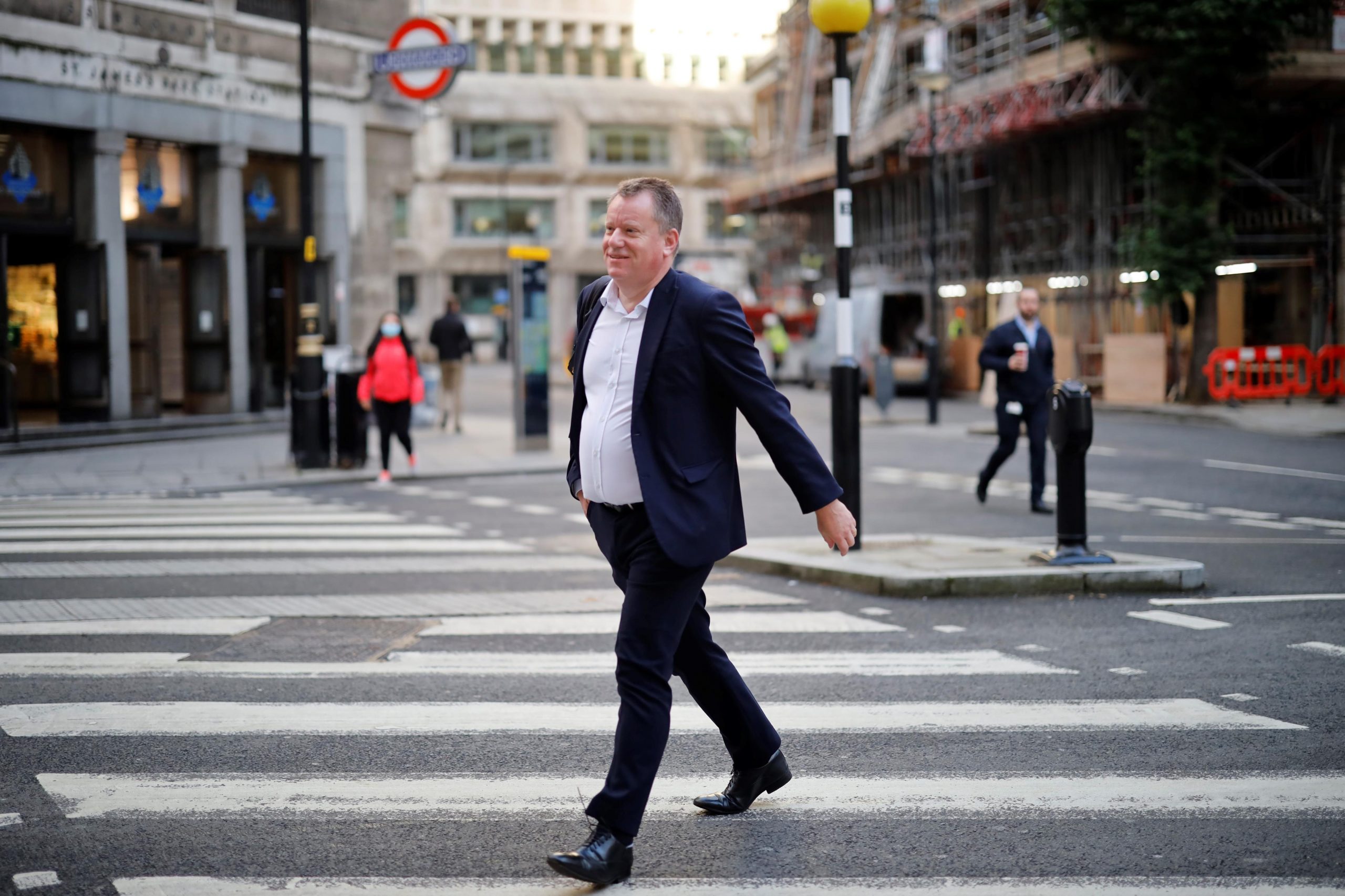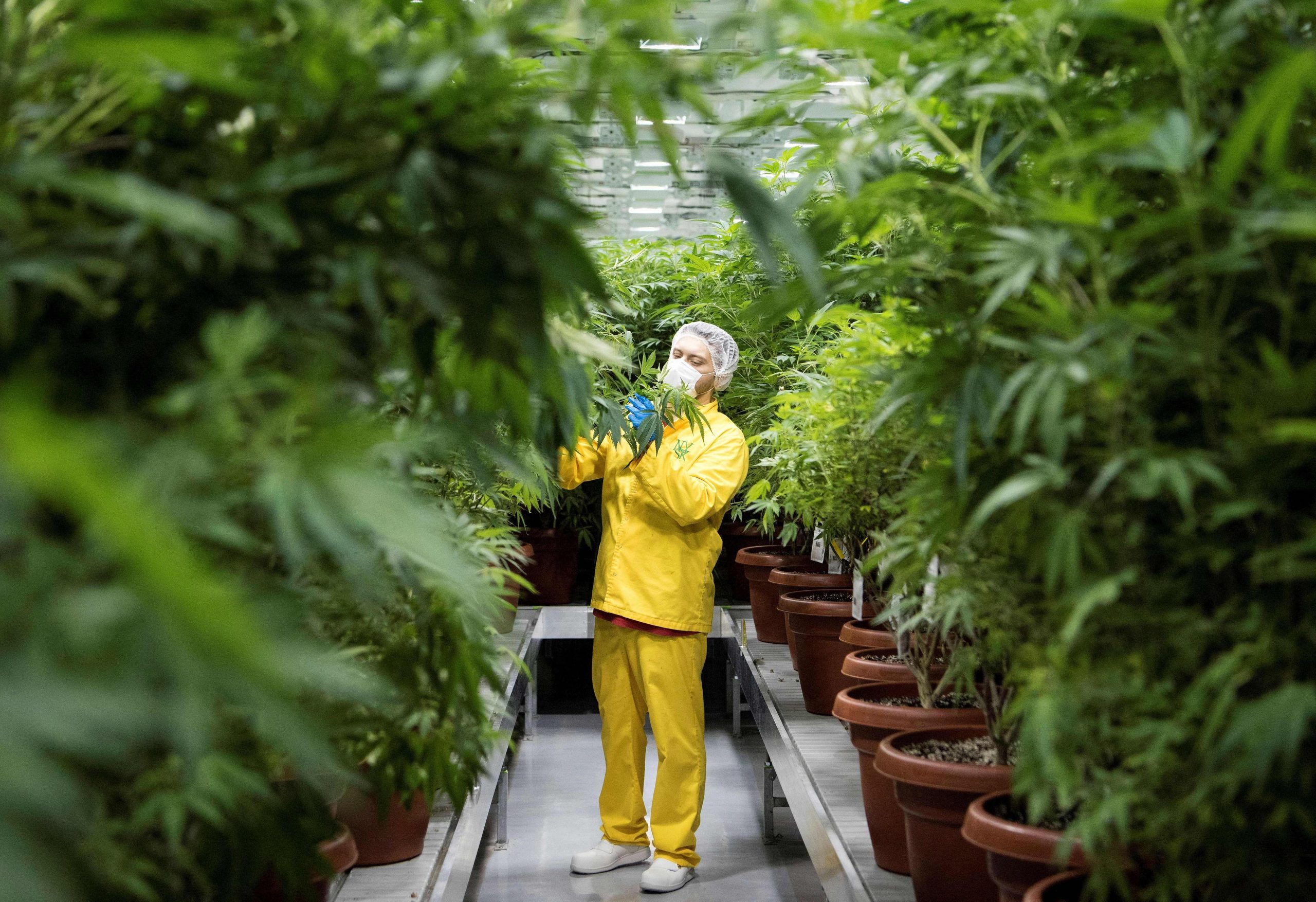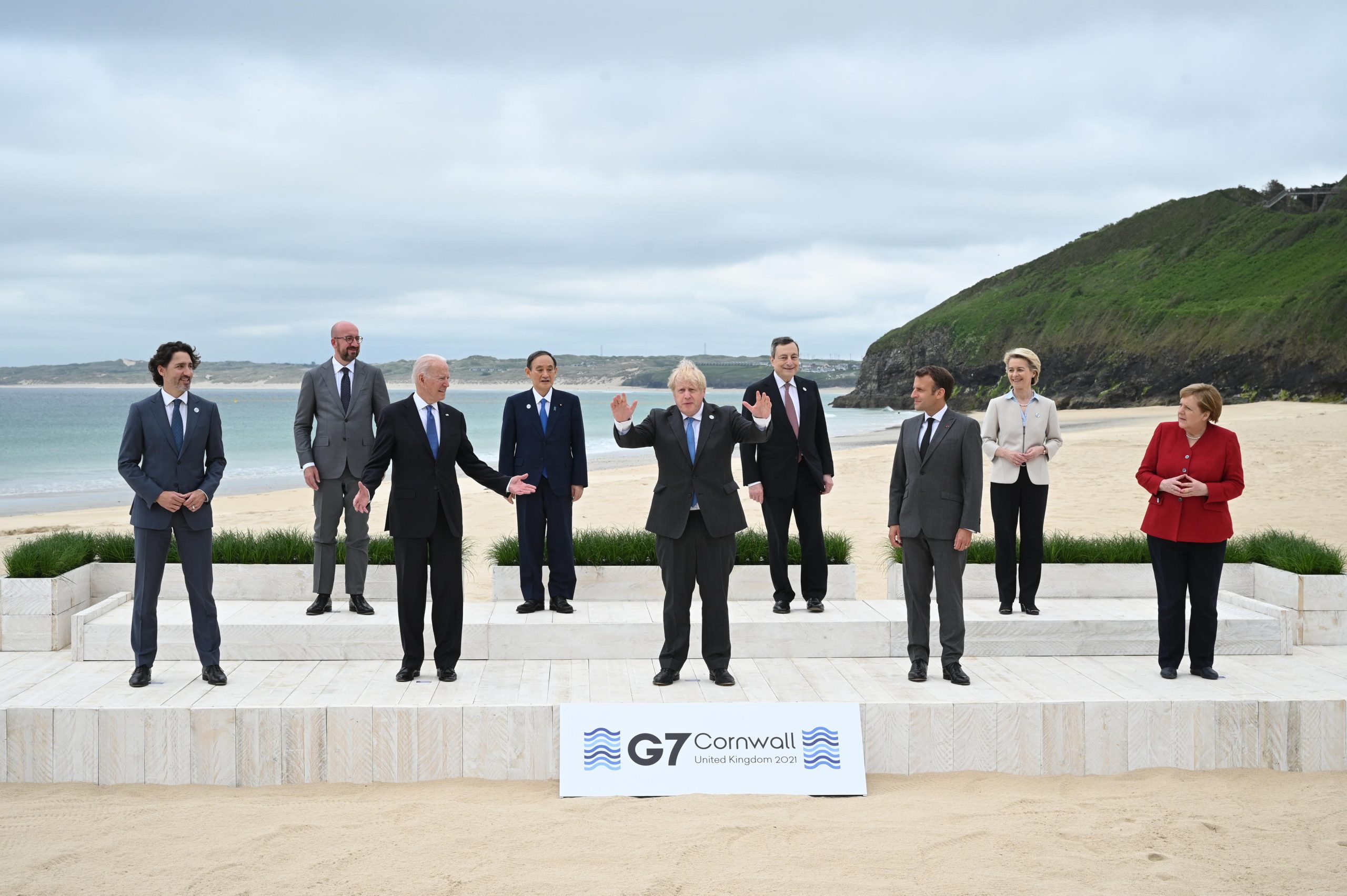
Credit: TOLGA AKMEN/AFP via Getty Images
Lord David ‘Frosty’ Frost, the UK’s Brexit minister, triggers many headlines and yet says little in public.
Although in a position of considerable (if fleeting) power and a current favourite in Boris Johnson’s febrile court, Frost is wary of scrutiny.
He has yet to agree to a long interview, although the bids from broadcasters are piling high. He enjoys the trappings of power while being cocooned from tough questioning.
Even so, when he does speak he inadvertently reveals a lot.
Frost occasionally addresses the Lords and select committees. He enjoys being the star guest at a few think tank events.
From these appearances Frost emerges as dull, politically maladroit and yet utterly self-confident, knowing he is acting with the full support of the prime minister.
I am struck in his exchanges how often he smiles with satisfaction as he reflects on how he and Johnson agree on their explosive approach to Brexit.
His wooden dullness does not matter very much. Indeed it might even be an asset in that few voters will know who he is or pay attention to his destructive conduct.
He is a perfect foil for Johnson in this respect. Frost is not going to steal the performer’s show. That is what Johnson expects of his ministers. But the other elements of Frost’s character point to big trouble to come, for the UK and for him.
Just before parliament broke for the summer, Frost demanded the “renegotiation” of the Brexit treaty that had been hailed by Johnson on Christmas Eve last year as a “Christmas present” to the British people.
Frost had been the chief negotiator. It was Johnson that had proposed in the autumn of 2019 a border between Northern Ireland and Great Britain as a route to his hard Brexit. Inevitably that meant bureaucracy and checks at his chosen border.
They were specified in detail in the Northern Ireland Protocol. Now Frost calls for a “wholesale change”, as if he and Johnson had no role in agreeing the protocol months earlier.
Instead, Frost proposes what has become known as the fantastical ‘honesty box’ alternative, in which Johnson’s chosen gateway to the single market has no significant checks. Johnson must calculate that few voters will notice the details, partly because of Frost’s inability to excite, while they will support another ‘battle with Europe’.
But Frost’s other characteristic, a tin ear for politics, means that Johnson’s fickle admiration may not last.
Frost’s use of language is far too clunky given his revolutionary approach to international affairs. In his statement calling for the renegotiation of the treaty he accused the EU of being too “purist” in its attitude.
In earlier articles, he suggested the EU was too “theological”. This would be hilarious if it were not so serious. Imagine bank robbers arguing that the police were taking a too puritan or theological approach to the law.
Again, for now, Johnson approves. But unlike Frost Johnson has other calculations to make. He aches for a US trade deal and to be seen to be having a good relationship with president Joe Biden.
The PM needs EU countries to come together with him for the big climate change summit he is hosting in Glasgow this November, one he yearns to present as being of historic significance. He can forget a rapport with Biden and wider international co-operation if Frost goes to war with Europe over Ireland.
What the unanswerable Irish question requires is dexterity, guile and subtlety from an experienced politician or a star diplomat. Frost is having to be political for the first time in an otherwise unspectacular career as a diplomat and head of the Scotch Whisky Association.
He is the equivalent of Jeremy Corbyn suddenly becoming leader of the opposition having been a backbencher for decades. Corbyn was not ready. Nor is Frost.
On one level Frost is too clumsily candid or too obviously disingenuous. Last month he told UK In A Changing Europe in relation to challenging the protocol: “We’ve learned a lot about how economic actors behave… we underestimated the chilling effect.”
He and Johnson must have been the only ones in the UK and Europe that underestimated the effect of the protocol. His words invite the alternative conclusion. They knew full well what would happen, and had no intentions of adhering to what they had signed up to.
Frost told one select committee of MPs last month that when the UK originally failed to give the EU full diplomatic status post Brexit, the vindictive act had been “misinterpreted”. He did not explain how. The excuse of “misinterpretation” is one deployed often by inexperienced diplomats when a storm erupts. It is an obvious cliché. The best politicians are more subtle, textured, and therefore less transparent when they seek to disguise chaotic u-turns, as this one was.
Frost has no feel for words that help to provide shields and weapons for a cause.
When Elton John joined the protests of musicians and other artists over the dire restrictions on their performing opportunities in the EU Frost told the culture select committee last month that the singer had hits long before the UK joined the EU. Even an average politician in the Commons would not have made such a stupid intervention, not least against a revered superstar.
Evidently, Frost is enjoying himself in his senior role, but he must be slightly bewildered. Last autumn he told one select committee that he spoke to Dominic Cummings, then in Downing Street, several times a week, more than he spoke to Johnson. Now Cummings is gone.
Frost is wholly dependent on Johnson continuing to support a belligerence influenced by Cummings, the new prime ministerial tormentor.
The role of Lord Frost, an out of depth courtier, is one of the many Brexit calamities that deserves more attention. Thankfully, although he partly hides away, he says enough to be an alarming guide to a dark Brexit saga that is far from done.
Steve Richards’ latest book The Prime Ministers We Never Had – From Rab Butler to Jeremy Corbyn is published in September.


